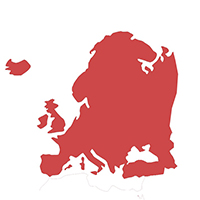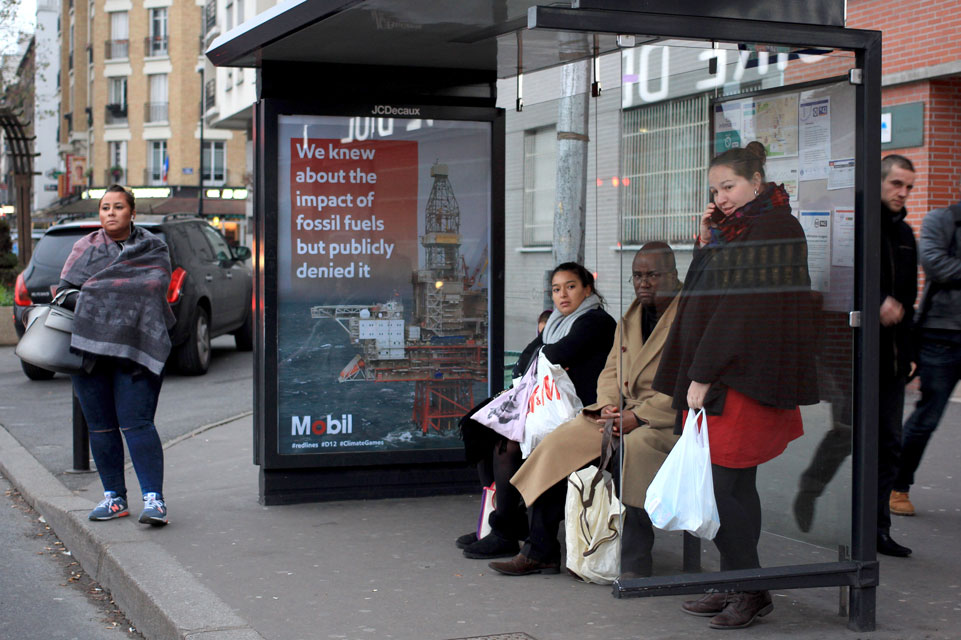Corporates at COP
Elena Nikolovska | December 3, 2015.
As the climate talks roll on in Paris, there’s a certain smell in the air. It isn’t the apples or chocolate being handed out at the entrance to the conference centre, nor the popular free coffees being handed out by the German government. It’s the smell of greenwashing. And this isn’t the first time.
France is hosting the 40,000 attendees of the COP21 conference at Le Bourget, a sprawling airport hanger just outside Paris. To pull together this massive event, that involved the largest gathering of world leaders ever, required hundreds of millions of euros. This was partially financed by contributions from dozens of corporations ranging from banks to technology giants.
The aim of the conference is to produce a legally binding international treaty on climate that will serve as a roadmap to keeping global temperatures below 2°C. For more on the possible outcomes of COP21, check out The Verb’s Negotiation Compass.
Over the last year, Paris has sought to set an example of how sustainable a megacity can be. However, this same eco-enthusiasm may be overshadowed by a Corporate International‘s report on the funders of the conference. Four of the leading sponsors are European energy giants – Engie, EDF, Suez Environnement and BNP Paribas – which collectively own at least 46 coal-fired power plants around the world.
“Tufanbeyli coal power plant in Turkey is financed by BNP Paribas – that’s also one of the many investors behind an oil refinery built by Azeri state company SOCAR in Aliaga,” says Pippa Gallow, a research at the Central and Eastern European Bankwatch Network.
Other big sponsors of the conference include Air France. An oft overlooked policy area of the negotiations is bunkers, emissions from international aviation and shipping. These emissions are not counted within any one country’s overall emissions profile. Yes, despite not forming a piece of the Paris package being discussed, the global transportation sector now accounts for 14 per cent of global CO2 greenhouse gas emissions.
And although the aviation industry claims it makes up only two per cent of global emissions, this is actually equivalent to Germany or South Korea’s total emissions. Clearly, something is amiss.
This week in Paris a guerilla art group called Brandalism placed over 600 fake adverts around the city to criticise the corporate takeover of COP21. Joe Elan from Brandalism argues that by sponsoring the climate talks: “Major polluters such as Air France and GDF-Suez-Engie can promote themselves part of the solution – when actually they are part of the problem.”
This conflict manifests itself within the negotiations as well. Most European Union candidate states argued their national targets were in line with EU regulations and goals, but according to analysis from Frank Bold, a legal consultancy, at least five new lignite power plants – in Bosnia-Herzegovina, Serbia and Montenegro – could contradict this position.
Industrialised nations seem convinced of the urgent nature of climate change, since most of them, such as Sweden, have spoken about plans for a low or no carbon future.
German Chancellor Angela Merkel stated: “In the course of the 21st century we have to achieve a far-reaching decarbonisation of our economy. We are going to reduce our emissions by 40 per cent, and this year we will have more than 20 per cent renewables.”
But on the ground back in Germany, the KfW banking group, through its subsidiaries KfW IPEX bank, DEG and KfW development bank, are reportedly funding international coal projects and is active in south east Europe and Turkey. What’s more, the European Bank of Reconstruction and Development, based in London, active in the Balkans, funding projects inside national parks and rehabilitating old coal power plants.
It seems that despite the French Government’s best efforts to be climate conscious, the world’s big corporate polluters are intimately involved with the process of negotiating an international treaty.














comment